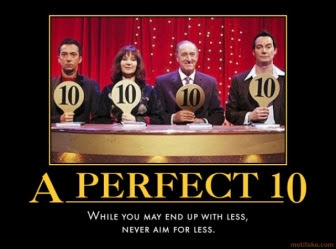And when we seek out our religious leaders for answers, many tell us that we are defective by Nature, “totally depraved” or “broken” from birth, morally unable to do Good, even if we wanted to.
Some claim that, from our birth, we are slaves to a base, “fallen” Nature that we can’t control, and that only the magic remedy of a “simple salvation prayer” can fix us.
BUT DON’T YOU BELIEVE IT! The Bible and the teachings of our Master, Jesus, actually tells a vastly different story than the crafty theology of later men.
The Bible tells us that King David, who was broken himself from living recklessly and Godlessly, turned back to God, repented of his sins, and lived blamelessly, with “clean hands” before God.
David, after repentance, says, “I have been blameless before Him and have kept myself from sin.” (Psalms 18:24) So may we, as well.
The Bible shows an entire city, Nineveh, turning to Yahweh, the One God of Israel, and repenting of their sins, and receiving forgiveness from that One God. If pagan Nineveh can turn and do Good, we can, too!
And what about Adam? Did his sin in the Garden “curse” us with the inability to choose to do Good? No. We find no curse or excuse to avoid doing Good in Adam's story.
Adam’s own son, Cain, was told by God that he would be rewarded if he did what was right, and that he COULD and MUST do Good.
“If you do what is right, will you not be accepted? But if you do not do what is right, sin is crouching at the door; it desires you, BUT YOU MUST RULE OVER IT.” (Gen. 4:7)
There is therefore no hint of a curse making us morally unable to do good in the Adam and Eve story.
Jesus tells a parable of a young man who, after squandering his family’s wealth after demanding his inheritance early, returns to his father in a spirit of repentance and receives forgiveness.
The Bible repeatedly tells us that the condition of sinful disobedience is just that – a failure to obey God’s Moral Laws for living. And that the only remedy for that failure is to repent, and seek to DO Righteousness.
“Wash yourselves, make yourselves clean. Remove the evil of your deeds from My eyes. Cease to do evil, Learn to do good,” urges Isaiah (1:16-17)
“Do what is right and Good in the sight of Yahweh,” (Deut. 6:18)
“Trust in Yahweh (the LORD) and do Good.” (Psalms 37:3)
“Turn from evil and do Good. Seek peace and pursue it. (Psalms 34:19)
The Book of Job instructs, “The righteous will hold to their ways, and those with clean hands will grow stronger.” (Job 17:9)
The clear lessons of the Bible teach that we may be broken right now, but we certainly weren’t “born that way,” and we should not remain that way.
The experiences of Jesus teach us that human beings do, indeed have the ability (and the responsibility) to recognize when we are on the wrong path, and repent of it.
We can seek, as Jesus proved by his life, to grow in wisdom and in spiritual strength, enduring whatever life throws at us, by relying on God’s plan for our lives (a plan which is nothing more, or less, than following His path of Righteousness.)
Suffering ups and downs in life is completely natural, says the Bible, and so is overcoming them.
Further, Jesus’ own life teaches us that we as human beings can thrive even when persecuted, although most of us don’t have to go through the verbal and physical abuse HE endured, certainly.
In fact, Jesus taught a Gospel of ACTIVELY DOING RIGHTEOUSNESS. That, and only that, was his message, which he described as the way we are to bring in God’s Heavenly Kingdom right here on the earth, right now.
And unlike all other previous prophets, and all religious leaders since, Jesus set himself up as a MODEL for imitation. “Follow me,” doesn’t mean just walk behind Jesus, admiring him, but to actively pursue Righteousness through doing Good, as he demonstrated for us.
He tells us to “deny your Self” and actively, and daily, “take up your cross” (Mark 8:34; Matt 16:24) by serving others. We are to clothe the naked, give food and drink to the hungry and thirsty, and visit the sick and those in prison. (Matt. 25)
If this Gospel message of his sound like a challenge, it is. It’s the challenge Jesus gave all who follow him, and if you failed to detect our “fallenness” in his words, or an excuse of “moral inability” to do Good that would allow us to avoid taking up this challenge, you didn’t miss it. Because t’s not there. He never said it. And neither do the rest of the Hebrew Scriptures he quoted and studied as a youth.
It’s not in his words because it’s not in our Nature. Our Nature is meant to be perfected through Righteous action, just as God and His scripture, through His prophets, and as His Son, Jesus, spelled out clearly for us to imitate.
And if you somehow missed that message in your church last Sunday, you need to ask WHY you didn’t hear it.
Because the world needs that message of healing and help. And it needs it RIGHT NOW.




